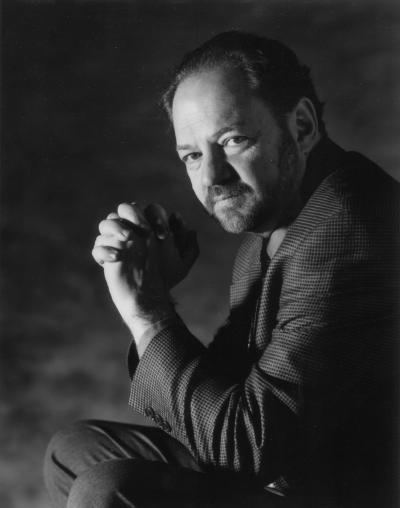December 4, 2003
Hogness Symposium on Dec. 9 tackles topic of Global Health and Justice
“Global Health and Justice: The Ethics of Access to Care and Protection from Secret Experiments” is the title for the next John R. Hogness Symposium on Health Care, presented this year in cooperation with Puget Sound Partners for Global Health.
The symposium, which is free and open to everyone, will be from 3 to 4:30 p.m., Tuesday, Dec. 9, in Hogness Auditorium at the Health Sciences Center.
The speakers are Dr. Jonathan Moreno, director of the Center for Biomedical Ethics at the University of Virginia, and Dr. Paul Farmer, founding director of Partners in Health and a professor at Harvard Medical School.
Moreno, who is also the Emily Davie and Joseph Kornfeld Professor of Biomedical Ethics at the University of Virginia, has written several books that have made significant contributions to current discussions of ethics in health care and research. Among these are Undue Risk: Secret State Experiments on Humans, published in 2001; Deciding Together: Bioethics and Moral Consensus, 1995; Ethics in Clinical Practice, 1994 and 2000; and Arguing Euthanasia, 1995. He is now working on a textbook on human research ethics and an edited anthology on ethical issues in the post-Sept. 11 environment, titled In the Wake of Terror, to be published by MIT Press.
He is a commentator and columnist for ABCNews.com and is a frequent guest and expert on national news and information programs.
Moreno is an adviser to several federal agencies and a member of national ethics councils. He is president-elect of the American Society for Bioethics and Humanities, a member of the Institute of Medicine’s Board on Health Sciences Policy and a member of the Association of Human Research Protection Programs’ Council on Accreditation.
He was a member of the National Human Research Protections Advisory Committee in 2001-02 and in 1994-95 he was senior policy and research analyst for the President’s Advisory Committee on Human Radiation Experiments.
A graduate of Hofstra University, he earned his Ph.D. in philosophy from Washington University in St. Louis in 1977 and then was a Mellon postdoctoral fellow in cooperation with the Aspen Institute for Humanistic Studies.
Dr. Paul Farmer is visiting Seattle as the guest of Puget Sound Partners for Global Health, a network of Seattle-area research and international health organizations that includes the UW Schools of Medicine and of Public Health and Community Medicine.. Other members of the network, which is funded by the Bill & Melinda Gates Foundation, are the Fred Hutchinson Cancer Research Center, the Institute for Systems Biology, the Program for Appropriate Technology in Health (PATH), and the Seattle Biomedical Research Institute. For more on the organization, see the Web site at http://depts.washington.edu/pspgh/index.php
Farmer, a physician and professor at Harvard Medical School, is a founding director of Partners in Health, an international charity organization that provides direct health care services and conducts research and advocacy activities. Farmer began working in Haiti in the mid-1980s as a student and founded the organization Zanmi Lasante in Haiti’s Central Plateau. Zanmi Lasante has grown from a one-building clinic in the village of Cange to a multiservice complex that includes a primary school, an infirmary, a surgery wing, a training program for health outreach workers, a l04-bed hospital, a women’s clinic and a pediatric care facility. Farmer has been medical director of the organization since 1991.
Zanmi Lasante has pioneered the treatment of multi-drug resistant tuberculosis and HIV in Haiti, and Farmer has become an expert on how scarce resources can be used to treat these diseases in less developed nations around the world. In 2002, Haiti was among the first group of countries awarded money from the Global Fund to Fight AIDS, Tuberculosis and Malaria.
With colleagues in Haiti and Peru, Farmer has been a leader in the international effort to control multi-drug resistant TB and helped establish the World Health Organization’s working group on the problem. He is especially concerned with treating the disease in prison populations and was chief medical consultant for a treatment project in the prisons of Siberia.
He has written several volumes on his work, including Pathologies of Power, 2003; Infections and Inequalities, 1998; and AIDS and Accusation, 1992.
At Harvard, he is Presley Professor of Medical Anthropology in the Department of Social Medicine. He has received numerous awards, including a McArthur Foundation “genius award” in 1993 and the Heinz Award for the Human Condition in 2003. He earned a bachelor’s degree from Duke University and both his M.D. and a Ph.D. in medical anthropology from Harvard in 1990.
The John R. Hogness Symposium on Health Care was established by the UW Board of Regents when Hogness retired as president in 1979, to honor his distinguished career as a physician, teacher, researcher and university leader. Hogness is a former medical director of UW Medical Center, a former dean of the UW School of Medicine, and was the first president of the Institute of Medicine of the National Academy of Sciences. After retiring from the UW presidency, he was president of the Association for Academic Health Centers. He now lives in Seattle. Hogness Auditorium at the Health Sciences Center is also named to honor him.
Students and faculty members from each of the health sciences schools participate on the Hogness Symposium Planning Committee.



